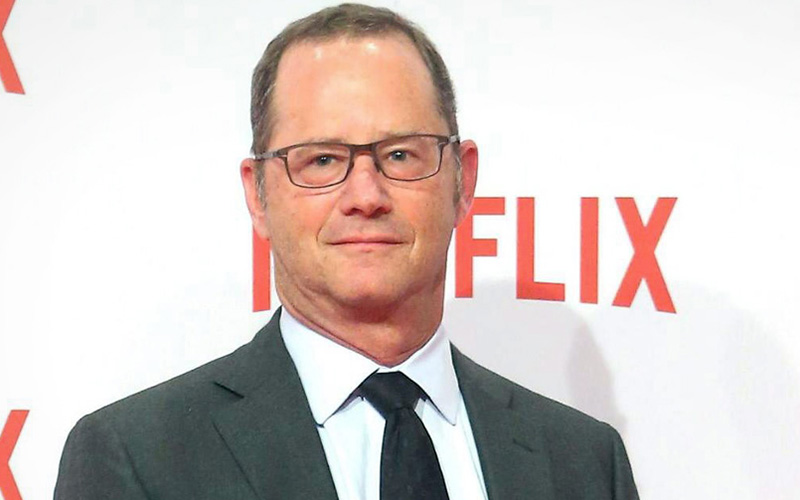
Netflix has fired its top communications spokesman after the longtime company exec was caught using the N-word on two separate occasions during meetings.
According to the Hollywood Reporter, Netflix CEO Reed Hastings sent a lengthy e-mail to Netflix employees saying that he had fired Johnathan Friedland for showing an “unacceptably low racial awareness and sensitivity” that did not align with the company’s values.
In the staff memo, Hastings recalled two separate instances in which Friedland used the N-word, a derogatory term for Black people.
The first time was several months ago in a PR meeting about sensitive words, and Friedman apologized after he was told by several people how inappropriate and hurtful his use of the term was.
The second time Friedman used the N-word was just a few days later, during a meeting with two black Human Resources employees who were trying to help him deal with the original offense.
“We had hoped this was an awful anomaly never to be repeated,” Hastings wrote. “Three months later he spoke to a meeting of our Black Employees @Netfix group and did not bring it up, which was understood by many in the meeting to mean he didn’t care and didn’t accept accountability for his words.”
Hastings continued, “The second incident confirmed a deep lack of understanding, and convinced me to let Jonathan go. As I reflect on this, at the first incident, I should have done more to use it as a learning moment for everyone at Netflix about how painful and ugly that word is.”
Hastings said his white privilege caused him to “intellectualize” and “minimize” the incidents and acknowledged that he needs “to set a better example by learning and listening more so I can be the leader we need.”
Friedland, who served as the popular streaming company’s chief communications officer for the past six years, tried to get ahead of the news of his firing by taking to Twitter to announce his exit from Netflix after making “insensitive” comments to members of his team.
“I’m leaving Netflix after seven years,” Friedland tweeted. “Leaders have to be beyond reproach in the example we set and unfortunately I fell short of that standard when I was insensitive in speaking to my team about words that offend in comedy.” He said he felt “awful” about the distress his lapse in judgement caused the company and its staff, and also said he was “honored” to have worked for the company for so long.
I feel awful about the distress this lapse caused to people at a company I love and where I want everyone to feel included and appreciated. I feel honored to have built a brilliant and diverse global team and to have been part of our collective adventure.
— jonathan friedland (@jsf33) June 22, 2018
He later tweeted out, “Thanks. Rise high, fall fast. All on a couple of words….” before quickly deleting it, but The Hollywood Reporter captured a screenshot before the tweet was removed.

Friedland, a former Disney executive, first joined Netflix back in February 2011 as the company’s vice president of global corporate communications and was promoted to the top comms role the next year. A replacement for Friedland hasn’t been named yet.
You can read Netflix CEO Reed Hasting’s full memo to employees announcing Friedman’s firing below:
All:
I’ve made a decision to let go of Jonathan Friedland. Jonathan contributed greatly in many areas, but his descriptive use of the N-word on at least two occasions at work showed unacceptably low racial awareness and sensitivity, and is not in line with our values as a company.
The first incident was several months ago in a PR meeting about sensitive words. Several people afterwards told him how inappropriate and hurtful his use of the N-word was, and Jonathan apologised to those that had been in the meeting. We hoped this was an awful anomaly never to be repeated.
Three months later he spoke to a meeting of our Black Employees @ Netflix group and did not bring it up, which was understood by many in the meeting to mean he didn’t care and didn’t accept accountability for his words.
The second incident, which I only heard about this week, was a few days after the first incident; this time Jonathan said the N-word again to two of our Black employees in HR who were trying to help him deal with the original offense. The second incident confirmed a deep lack of understanding, and convinced me to let Jonathan go now.
As I reflect on this, at this first incident, I should have done more to use it as a learning moment for everyone at Netflix about how painful and ugly that word is, and that it should not be used. I realize that my privilege has made me intellectualize or otherwise minimize race issues like this. I need to set a better example by learning and listening more so I can be the leader we need.
Depending on where you live or grew up in the world, understanding and sensitivities around the history and use of the N-word can vary. Debate on the use of the word is active around the world (example) as the use of it in popular media like music and film have created some confusion as to whether or not there is ever a time when the use of the N-word is acceptable. For non-Black people, the word should not be spoken as there is almost no context in which it is appropriate or constructive (even when singing a song or reading a script). There is not a way to neutralize the emotion and history behind the word in any context. The use of the phrase “N-word” was created as a euphemism, and the norm, with the intention of providing an acceptable replacement and moving people away from using the specific word. When a person violates this norm, it creates resentment, intense frustration, and great offense for many. Our show Dear White People covers some of this ground.
Going forward, we are going to find ways to educate and help our employees broadly understand the many difficult ways that race, nationality, gender identity and privilege play out in society and our organization. We seek to be great at inclusion, across many dimensions, and these incidents show we are uneven at best. We have already started to engage outside experts to help us learn faster.
Jonathan has been a great contributor and he built a diverse global team creating awareness for Netflix, strengthening our reputation around the world, and helping make us into the successful company we are today. Many of us have worked closely with Jonathan for a long time, and have mixed emotions. Unfortunately, his lack of judgment in this area was too big for him to remain. We care deeply about our employees feeling safe and supported at Netflix.
Much of this information will be in the press shortly. But any detail not in the press is confidential to employees.
-Reed









